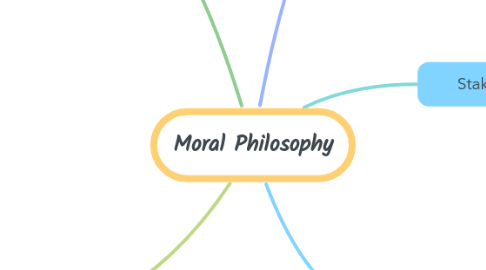
1. Nature of Problems
1.1. Right VS. Right: Choosing between two right things. Also called Ethical Delimma
1.1.1. Ethical Delimma
1.2. Right VS. Wrong: Tempted by wrong choice. We know what's right.
1.3. Wrong VS. Wrong: No right answer
2. Theories
2.1. Utilitarianism
2.1.1. Create greatest amount of good for greatest amount of people
2.2. Deontological
2.2.1. Personal intuition, values, or beliefs influence action
2.3. Natural Law
2.3.1. Let nature take it’s intended course with no intervention
3. Concepts
3.1. Consequentialism
3.1.1. Judge right or wrong merely based on the consequences.
3.2. Non-consequentialism
3.2.1. Judge right or wrong based on elements more than consequences, like intentions.
3.3. Virtue
3.3.1. Judge by the person's character. Like justice, charity, mercy, or wisdom.
3.4. Casuistry
3.4.1. Judge by past cases.
3.5. Relativism
3.5.1. Judge by current background including time, place, culture, and location.
3.6. Feminism
3.6.1. Judge around caregiving and relationship-maintaining, focuses on relationships and emotions.
4. Stakeholders
4.1. The people who will be affected by the dilemma. Could be: Family Doctors/nurses Hospital
5. Principles
5.1. Autonomy
5.1.1. Physicians respect patient's right to make decisions about life and body
5.2. Beneficence
5.2.1. Physicians are morally obligated to help. They should start with good intentions without any condition.
5.3. Non-maleficence
5.3.1. Physicians should cause no harm to patients. They should make sure that patients are safe in their actions.
5.4. Justice
5.4.1. Physicians should believe that all patiens are the same and should receive the same healthcare. Any treatment done should be fair to all.
